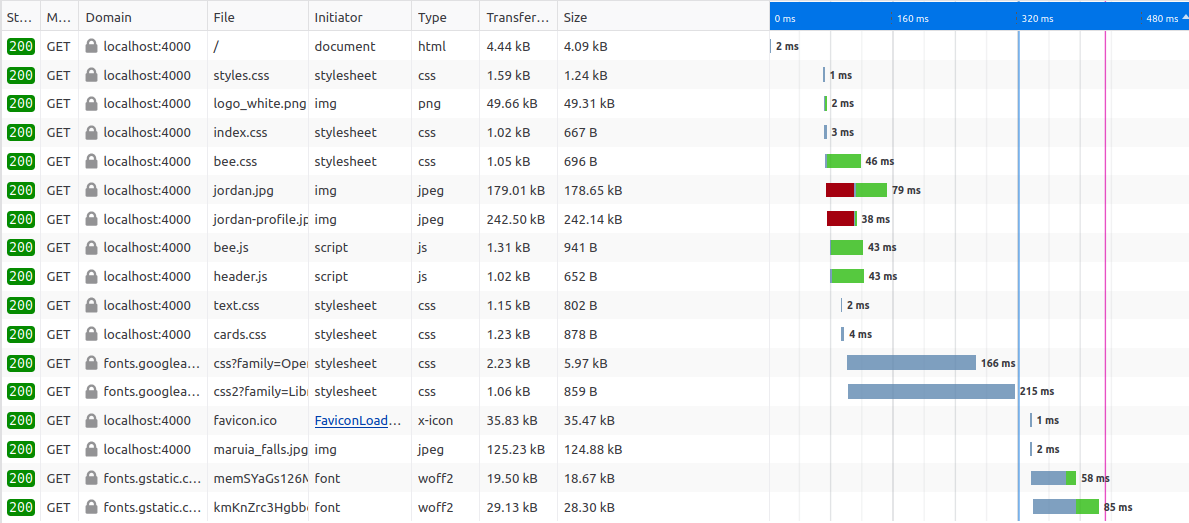Published 2025/05/19
Up until commit eb3011a, this website was designed with little concern for network performance. Analysis of a pre-optimisation network trace reported by Firefox (Figure 1) shows that the landing page takes approximately 410 ms to load and requires 18 distinct HTTP GET requests.

All HTTP requests after the initial document request (i.e. the one spawned by the user navigating to the web page) are caused by the result of an earlier request requiring more information from the web server. For example, the template that all pages on this website are based on contains the a stylesheet tag in the header of the form:
<link rel="stylesheet" type="text/css" href="/css/styles.css" />
Upon reading this, the web browser requests the file /css/styles.css to correctly style the web
page. This particular request is present as the second request in Figure 1. Upon receiving and
interpreting /css/styles.css an additional two requests are made due to the inclusion of @import
statements in the stylesheet. The associated requests are 10 and 11 in Figure 1.
@import "text.css";
@import "cards.css";
The @import statements were included for separation of concerns in the styling of the website.
Decomposing code in this manner is a common strategy for managing complexity in a code base and
groups related code in a logical manner for design thinking. However, this is clearly interfering
with the efficient loading of the website.
There is an effective way around this issue. The framework I have built this website in, Jekyll, can insert the text of a file into another at the time of compilation. This allows source code to remain well organised whilst not sacrificing the website performance.
<style>
/* Inserted from css/text.css */
{% include css/text.css %}
/* Inserted from css/styles.css */
{% include css/styles.css %}
</style>
Loading the same page, with all stylesheet and script tags, and import statements replaced with compilation-time inclusions where-possible yields an approximately 90 ms reduction in load-time (Figure 2). The number of requests is halved from 18 to 9. This is a small but noticeable improvement in the loading of the website.

The load-time improvement is limited by the large contribution of the font-loading time. Amdahl’s law would have dictated this be the first port of call for optimisation. However, since it is my preference not to self-host the fonts there is little improvement that I can make to the font-loading time at this time.